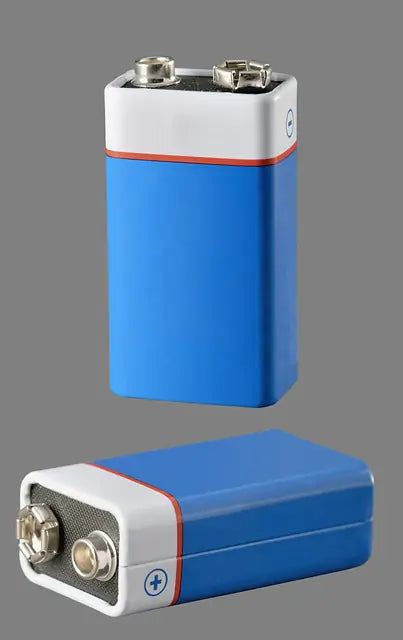Your basket is currently empty.
Shop NowShould I Recycle Lithium-Ion Batteries?

Lithium-ion batteries have only been on market since the 1990s, but they’ve made a big impact. They’re small and efficient, and you can use them in a wide range of appliances from smartphones to laptops. However, on the flip side, there are questions about their safety. Here's why you should always recycle lithium-ion batteries properly.
Why Recycle Lithium-Ion Batteries?
They cause hundreds of fires each year
Dispose of batteries incorrectly and they can cause fires. There have been hundreds of reports of battery fires in refuse vehicles and waste plants. They could even happen in your home. So why are lithium-ion batteries in particular such a fire risk?
It’s all down to the construction of the batteries. Get ready for a little science. They have a high energy density, and when they come into contact with a flammable electrolyte, a reaction occurs.
The heat from the reaction vaporises the electrolyte fluid, creating more heat, and the release of combustible gases. Once these gases mix with oxygen, flames develop on the outside of the battery. The battery will explode within minutes. Lithium-ion battery fires spread quickly and are hard to control.
What causes battery fires?
Electrical overload
Using the wrong charger or storing these batteries incorrectly can cause a fire.
Mechanical damage
If you crush the batteries or they fall onto hard ground, it can deform the battery cells leading to short circuits and fire.
Exposure to heat
If you expose the battery to an open flame or store it in direct sunlight it can cause a fire.
Batteries contain valuable materials
Batteries contain precious metals like nickel, zinc, and lithium which can be turned into new products. If you recycle lithium-ion batteries, they can become new batteries for electric vehicles. Recycling these materials is far less damaging to the planet than mining for new ones.
Audi Teams up with Battery Recycler
A shining example of a scheme to recycle lithium-ion batteries is the one between Audi and US battery recycler Redwood Materials. They’ve joined forces to collect end-of-life batteries from smartphones, laptops, and other devices.
Since November, customers in Nevada, US, have been able to drop off laptops, smartphones, e-bikes, e-scooters, electric toothbrushes, vacuum cleaners, power drills, and other rechargeable devices in recycling bins at Audi dealerships.
Redwood Materials already had a recycling scheme for Audi and VW electric car batteries. The new scheme is the first time the company has worked with a car manufacturer to collect domestic lithium batteries. The collected batteries will be repurposed as electric car batteries.
Redwood’s scheme comes at a time when a shortage of raw materials is causing problems with meeting the demand for electric car batteries. Around 15 million tonnes of lithium-ion batteries will reach the end of their life by 2030. At the same time, demand is predicted to soar by over 500% in the next ten years.
How to Recycle Batteries
Batteries are one of those things that make you stop and think twice when you get to your recycling bin. To take away some of the confusion, here’s a quick guide to recycling batteries.
Recycling ‘hidden’ batteries
Rechargeable items like laptops often have hidden batteries you can’t remove. If that’s the case, recycle the entire item at a proper recycling point. It’s a good idea to have two separate bags; one for small loose batteries and one for electrical items you need to recycle. Or even better, invest in a proper battery recycling bin.
Recycling loose batteries
Speaking of loose batteries, you must recycle your standard AA and AAA batteries and watch batteries at a battery collection point. Some councils accept batteries for recycling, check your council’s website to see if yours does. If it doesn't, this handy tool will tell you where your nearest recycling point is.
What about car batteries?
The law says you can’t put these in the bin. You must take them to a designated collection point. There will probably be one at your local household recycling centre and some garages have them too.
Like all batteries, lithium-ion batteries are classed as hazardous waste. They are dangerous if you don’t store, handle, or dispose of them correctly. So store and handle them with care, and recycle lithium-ion batteries at the end of their life. It’s safer for you and better for the planet! For more interesting articles on recycling and sustainability, check out the rest of our blog.
